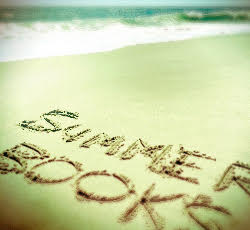
I don’t know about you, dear writers, but I love Summer-Reading-List season. I love it about as much as I love Holiday-Cookie season, (which is a lot, FYI).
I devour them all—Summer Reading Lists, that is. Literary lists from outlets like Flavorwire and NPR, beachy reads from women’s magazines, oddball lists on obscure blogs by little-known writers. Each introduces me to at least one must-read book, one story to eagerly anticipate.
This year, as I devour those lists, I’m also going to try something new, as well. And I ask you all to join me. I’m going to compile a To-Read Shelf of books from lists I wouldn’t normally check, of books written (and loved) by people very different from me.
Reading is a joy, yes, and it’s also essential to the practice of writing. It opens doors to new ways of tackling our own work. It grows our vocabularies. It inspires us.
So it’s good to read books that are loved by people who think differently than we do. It widens our perspectives of the world.
First, I’ll select some titles from the Project Nia Liberation Book List. This is a list of books for youths incarcerated in juvenile homes, put together by a Chicago nonprofit that works to help young people in trouble with the law. It’s a fascinating list, with everything from Letters To An Incarcerated Brother to classic YA novels to bestsellers by people like Stephen King.
Next, I’m collecting recommendations from readers under the age of 18. This idea comes courtesy of the Washington Post, which reported recently that children who choose their own summer reading lists retain their literacy skills better than those who are assigned reading lists by their teachers. This way, my friends and I can both have some vicarious reading excitement.
Last, I’m taking the suggestions for summer reading from TV host Melissa Harris-Perry at MSNBC. (Full disclosure: My husband is also a producer at that network.)
In response to controversy over a summer reading list put forth by the New York Times that included exactly zero authors of color, Ms. Harris-Perry suggested that book lovers respond not with outrage, but by making a new kind of reading list for themselves. Among her suggestions is to go back and read a book that you loved before you turned 18 years old, and to read one book by an author who does not share your gender, race, or sexual orientation.
“Reading,” Ms. Harris-Perry said, “is not about political correctness or enforced diversity, but about finding something new in ourselves.”
Hear, hear. Let’s all build our own new kind of summer reading list, and see what we discover.
Cheers,

Kelly Caldwell,
Dean of Faculty


